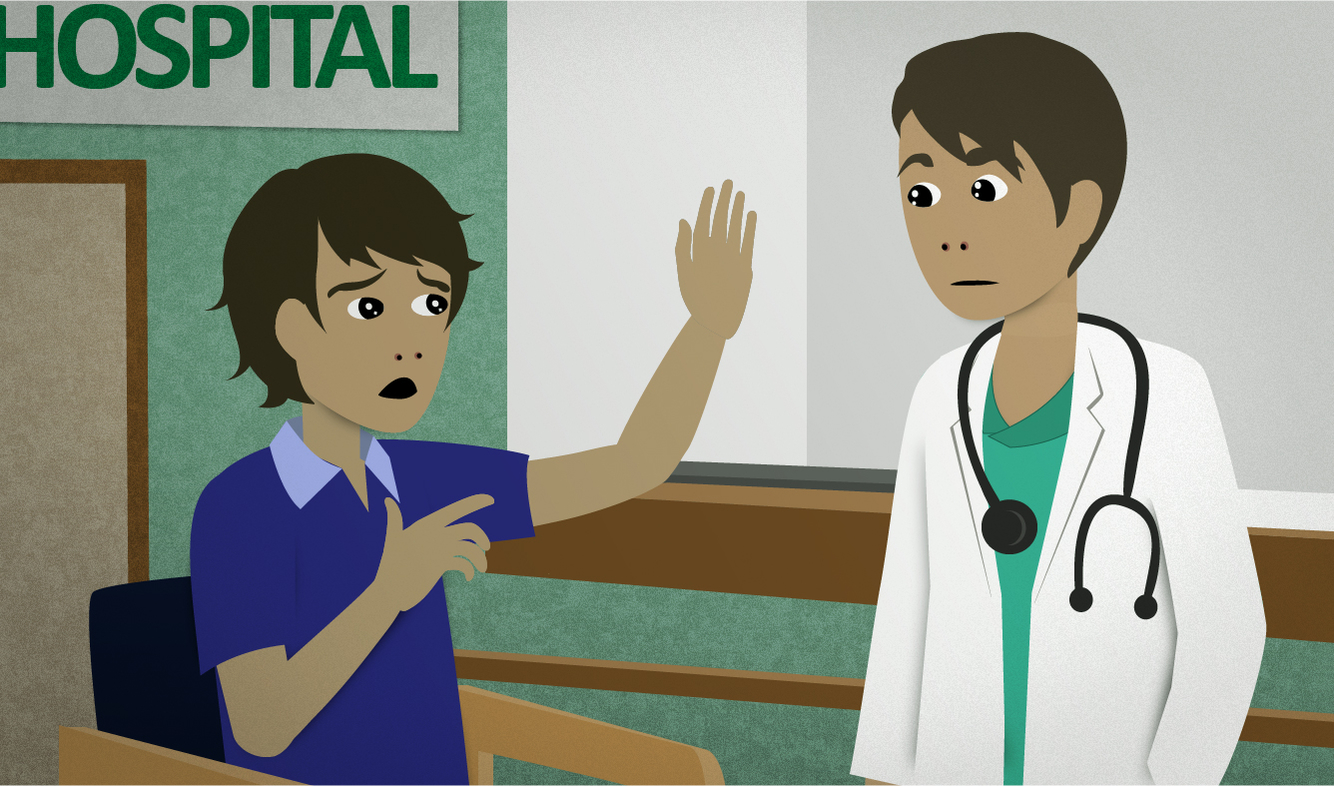“I get this sharp pain in my shoulder whenever I raise my arm.”
Your shoulder hurts sometimes. It hurts badly when you raise your arms up. You say this to describe the pain to your doctor.
I get this sharp pain in my shoulder whenever I raise my arm.
Want Video and Sound? Follow us on YouTube

sharp pain
"Pain" can describe any time a part of your body hurts, but there are different kinds of pain. A "sharp pain" doesn't last a long time, but it is quite painful. You might feel a sharp pain if you break a bone, or if someone punches you in your face.
Other kinds of pain include:
- a dull pain is not as strong as a sharp pain. You might feel this if you have a tooth ache, for example.
- a burning pain is strong but might be spread out over a large area
- a throbbing pain is what you feel when something hurts really badly and you can feel the blood pumping through it. You might feel this right after you have badly hurt yourself.
- soreness is a light kind of pain that you feel in your muscles. You might feel this after you exercise too hard.
this (person/thing)
In the example above, the speaker uses "this" instead of "a". There's a small difference between the two. When you say "this ___" it sounds like you're talking about one specific thing. "A ___" is more general.
You use "this ___" instead of "a" or "the" when you're introducing something specific that you're going to talk about. It's usually used at the beginning of a story or explanation. For example:
Amy and I were sitting there talking and this guy I know walked by.
I've had this song stuck in my head for two days!
Today I was talking with this girl at work who just got back from maternity leave.
In all of these examples, the speaker will continue by telling a story about that topic.
People only use "this ___" in this way in casual spoken English.
a pain in (a body part)
When you want to explain where you feel pain, you say that you have "a pain in ___". For example:
I had a horrible pain in my lower back.
I have a pain in my ankle.
Of course, you can also say "my ___ hurts":
My head hurts.
This is a more casual way way to explain your pain.
(something happens) whenever (someone does something)
Use "whenever" to talk about something that happens again and again in similar situations. For example:
He likes to stop by our office whenever he's in New York.
Individuals should be supported to make their own decisions whenever possible.
You could use "when" in each of these situations, but when you use "whenever" it sounds like it happens almost every time. If you use "when", it sounds like something might happen in that situation, or might not. So, for example:
I get a sharp pain in my shoulder when I raise my arm.
If you say this, the doctor might ask, "Does it hurt every time?" But if you used "whenever", the doctor would already know that it was every time.
